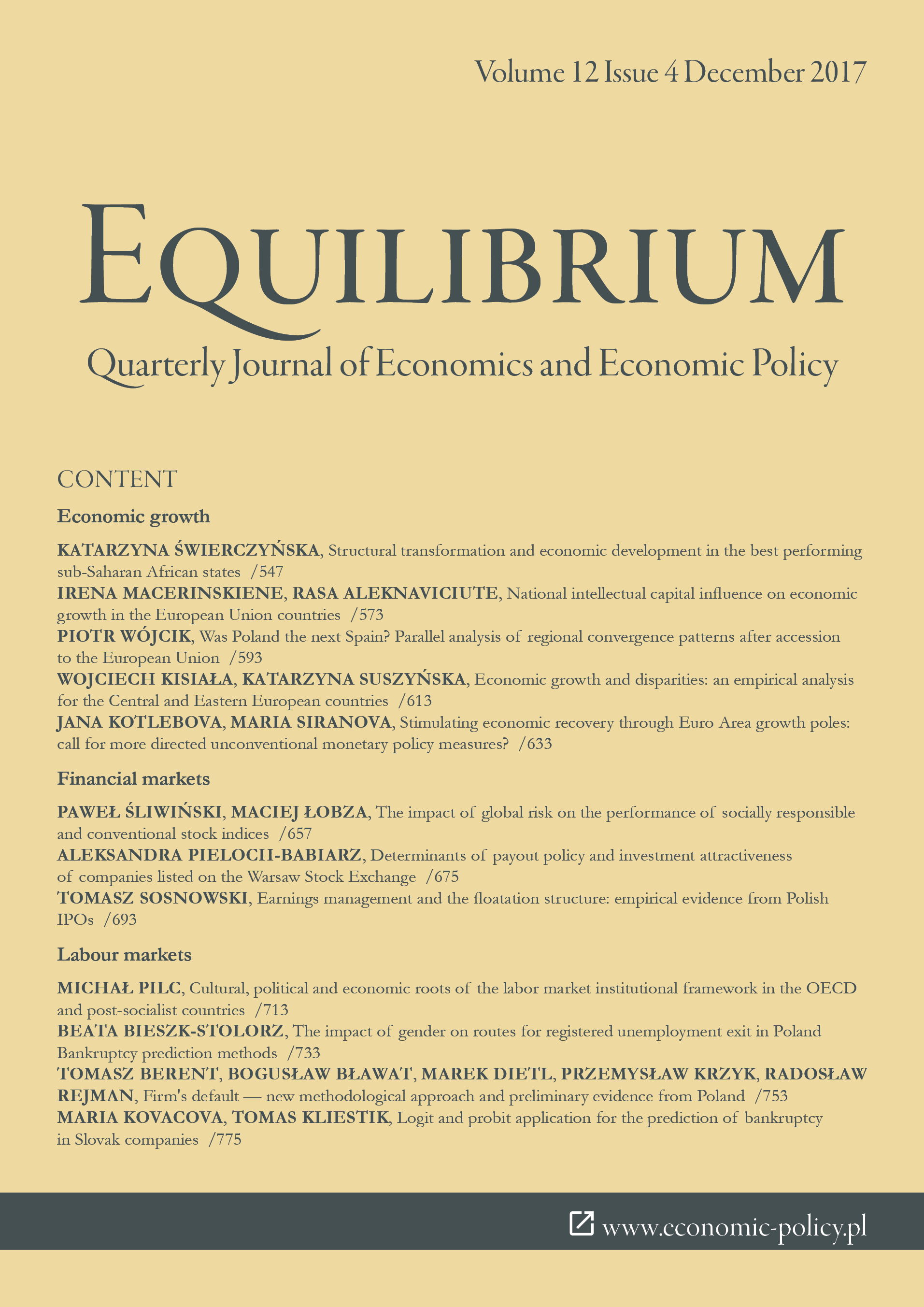Earnings management and the floatation structure: empirical evidence from Polish IPOs
Earnings management and the floatation structure: empirical evidence from Polish IPOs
Author(s): Tomasz SosnowskiSubject(s): Economy, Business Economy / Management, Transformation Period (1990 - 2010), Present Times (2010 - today)
Published by: Instytut Badań Gospodarczych
Keywords: initial public offering; IPO; primary shares; secondary shares, earnings management;
Summary/Abstract: Firms use discretionary accounting choices to manage earnings disclosures around the time of certain types of corporate events. The initial public offering particularly provides an opportunity to earnings management because of the significant information asymmetry between investors and issuers at the time of the offering. Purpose of the article: The main aim of the study is to empirically investigate the links between the earnings management and the portions of primary and secondary shares sold in IPO. Methods: In order to investigate whether the earnings management influences the issue of new shares and the sale of secondary shares I use Tobit and logit regressions, where discretionary accruals are the proxy for earnings management. Findings & Value added: Using a sample of 221 firms from Warsaw Stock Exchange between 2005 and 2015 I do not find evidence that the increase of pre-IPO discretionary accruals positively affects the sale of primary shares in the IPO, but the analysis has revealed that the deliberate conservative reporting limits the probability of the new shares issuance. In turn, the sale of secondary shares by the original shareholders in IPO is more likely in companies using a conservative earnings management. Furthermore, negative discretionary accruals increase the portion of secondary shares sold in the IPO.
Journal: Equilibrium. Quarterly Journal of Economics and Economic Policy
- Issue Year: 12/2017
- Issue No: 4
- Page Range: 693-709
- Page Count: 17
- Language: English

